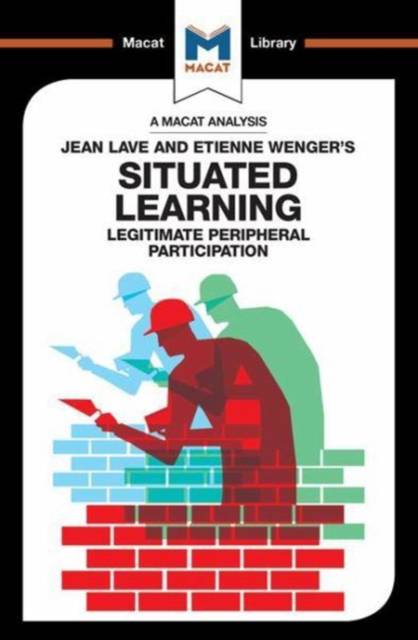
- Afhalen na 1 uur in een winkel met voorraad
- Gratis thuislevering in België vanaf € 30
- Ruim aanbod met 7 miljoen producten
- Afhalen na 1 uur in een winkel met voorraad
- Gratis thuislevering in België vanaf € 30
- Ruim aanbod met 7 miljoen producten
An Analysis of Jean Lave and Etienne Wenger's Situated Learning
Legitimate Peripheral Participation
Charmi PatelOmschrijving
Social anthropologist Jean Lave and computer scientist Etienne Wenger's seminal Situated Learning helped change the fields of cognitive science and pedagogy by approaching learning from a novel angle. Traditionally, theories of learning and education had focused on processes of cognition - the mental processes of knowledge formation that occur within an individual. Lave and Wenger chose to look at learning not as an individual process, but a social one.
As so often with the creative thinking process, a small, simple shift in emphasis was all that was required to show things in an entirely different light. What Situated Learning illustrated - and emphasized - was that learning is dependent on its social situation. Even though the most effective way to learn is through interaction with experts and peers in a community organized around a common interest, the traditional cognitive learning model failed to account for the way in which learners interact with their 'community of practice.' The new hypothesis that Lave and Wenger developed was that learning can be seen as a continuously evolving set of relationships situated within a social context. This allowed Lave and Wenger to place discussions of apprenticeship and workplace learning on a new footing - and led in turn to the book's impressive impact in business and management scholarship.
Specificaties
Betrokkenen
- Auteur(s):
- Uitgeverij:
Inhoud
- Aantal bladzijden:
- 96
- Taal:
- Engels
- Reeks:
Eigenschappen
- Productcode (EAN):
- 9781912128617
- Verschijningsdatum:
- 21/02/2018
- Uitvoering:
- Paperback
- Formaat:
- Trade paperback (VS)
- Afmetingen:
- 129 mm x 198 mm
- Gewicht:
- 99 g

Alleen bij Standaard Boekhandel
Beoordelingen
We publiceren alleen reviews die voldoen aan de voorwaarden voor reviews. Bekijk onze voorwaarden voor reviews.











